Everything You Need to Know To Retire in Thailand: How Much Does It Cost, Where and How
Have you ever found yourself pondering the idea of retiring in Thailand, the captivating country nestled between Myanmar, Laos, Cambodia and Malaysia? In this article, Me and my team will give you almost everything you need to know to retire in Thailand, from costs to the best places and some details about the Thai retirement visa.
Our consultancy’s team wrote this article after similar pieces about other hot retirement destinations, such as:
- Retiring in Jamaica
- Retiring in Nicaragua
- Retirement in Argentina
- Retirement in Peru
- Retirement in Italy
- Retirement in Finland
- Retirement in Puerto Rico (USA)
Our list of 24 countries offering retirement visas is a must-read if you are considering retiring abroad.
Is Retirement in Thailand Really a Good Idea?
The first question that you shoul really answer is: Is retirement abroad a good idea for me? If yes, you also must ask yourself: Am I willing to live in a far away continent?
If the answer to both questions is yes, then Thailand is probably one of the best destinations for you.
But only if you consider the distance. As I will explain in detail below, the distance, more than any other thing, is the biggest con of living in southeast Asia, and this is a point often ignored by many expatriate bloggers.

Distance, distance, distance. It means flights back home will be expensive and you may miss some important ocasions. I know that from my own experience living abroad for almost a decade.
If this is bearable for you, there are also many positive aspects on living abroad too, especially in very inexpensive, but still safe, countries like Thailand.
If after that discilaimer, you still consider retiring in Thailand, there are some good news, so keep reading.
Pros of Retirement in Thailand as an Expat
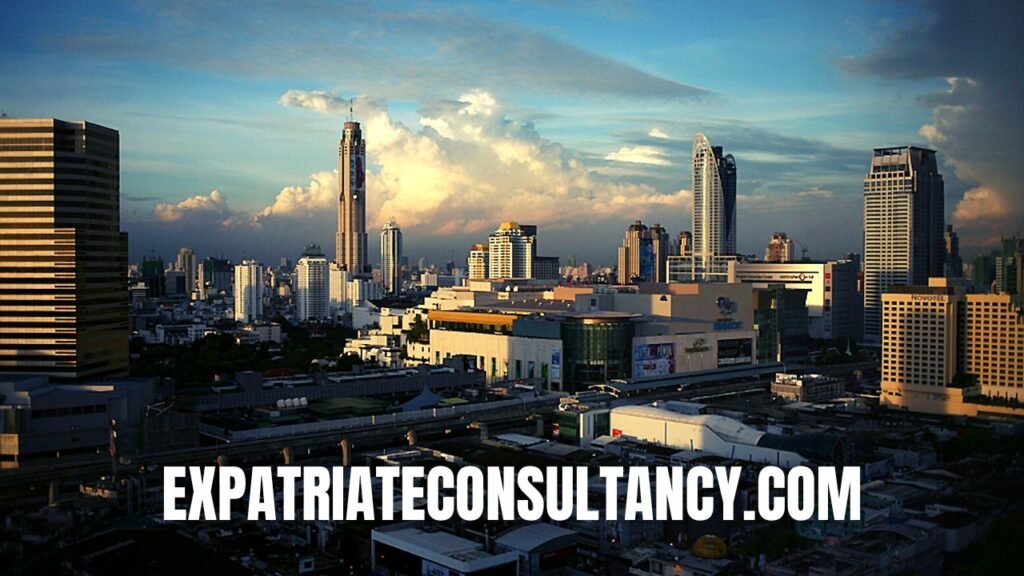
Affordable Cost of Living
One of the most enticing aspects of retiring in Thailand is the affordable cost of living. (Check more about it in the section below where we compare Thailand vs Spain and Florida).
One of the most significant advantages of retiring in Thailand is the cost of living. A monthly income of around $2,000 USD can afford you a comfortable lifestyle, including dining, entertainment, and healthcare. This is especially appealing when compared to the high costs in Western countries.
You can enjoy a comfortable lifestyle without breaking the bank. Local goods, including food, are inexpensive, allowing you to stretch your retirement savings further.
High-Quality Private Healthcare
Thailand is known for its excellent healthcare services at a fraction of the cost you would incur in the United States or Europe. Many expats qualify for free or heavily discounted healthcare from Thailand’s public hospitals. Private healthcare is also relatively affordable, making it easier for retirees to maintain their health without financial strain.
Beautiful Natural Scenery
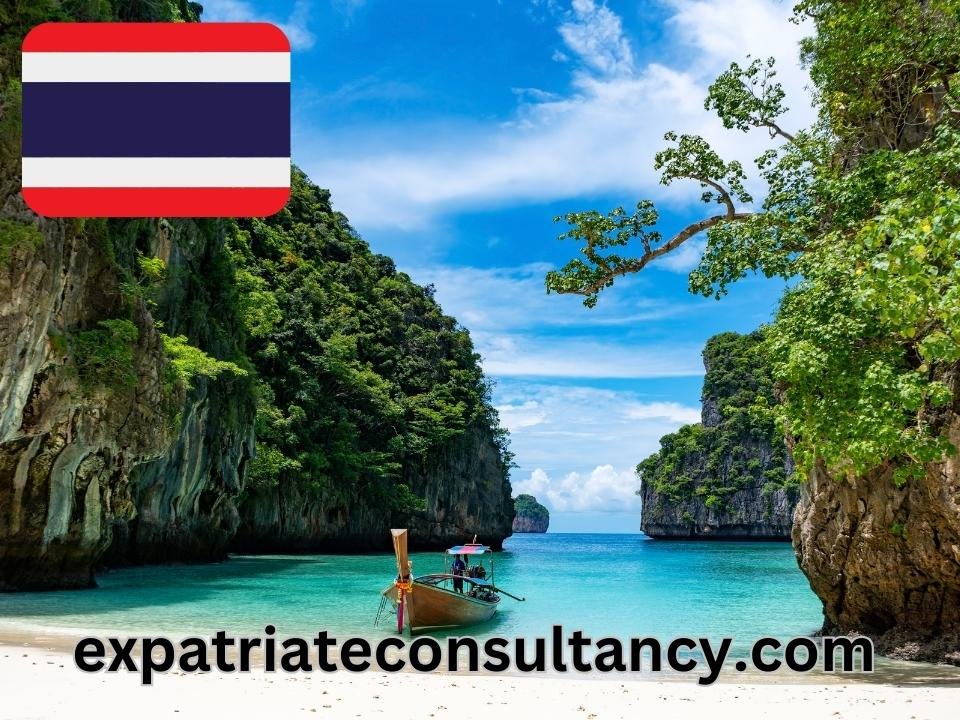
The country is a tropical paradise, boasting stunning beaches, lush jungles, and picturesque islands. The weather is generally warm and sunny, especially during the tourist high season. Whether you’re interested in beachside relaxation or exploring natural wonders, Thailand offers an idyllic setting for your retirement.
Abundant Leisure Activities
Thailand is never short on things to do. From beach bars and full-moon parties to night markets and local festivals, the country offers a wide range of activities to keep you entertained. During the low tourist season, locals can enjoy discounted tours and less crowded attractions, adding to the appeal of retiring in this vibrant country.
Expatriate Communities
Thailand has a sizable expatriate community, particularly in cities like Bangkok. This makes it easier to find like-minded individuals for socializing and networking, which can be a significant advantage for retirees looking to maintain an active social life.
The Cons: Reasons You May Not Want to Retire in Thailand
Distance
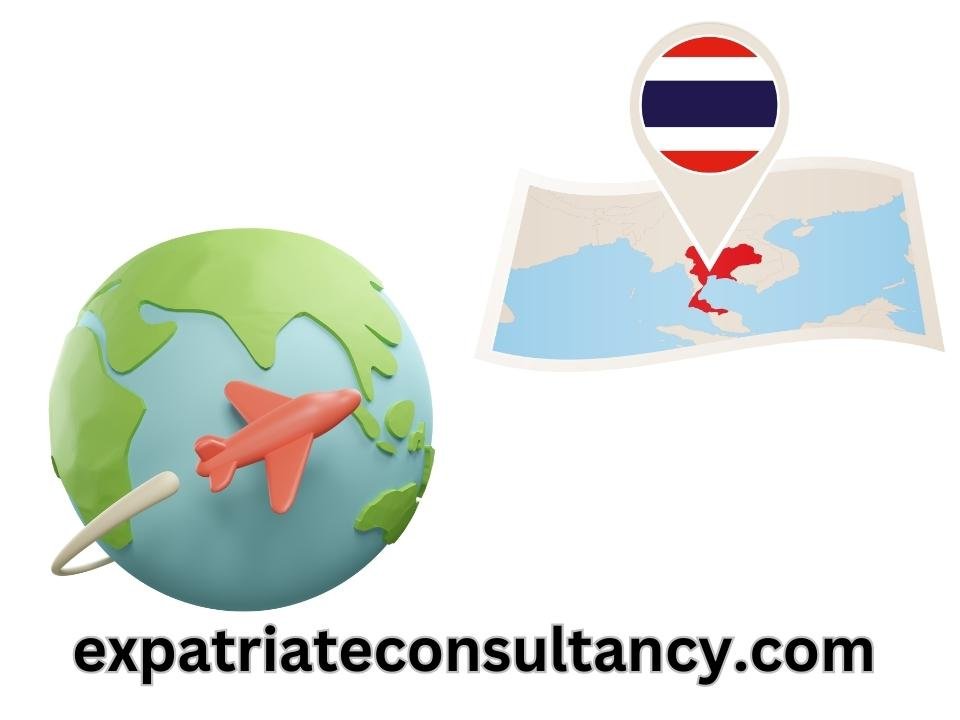
Thiland is far from the American or European continent. It can be expensive to visit your family and friends in your home country.
Flights between Thailand and the U.S. or Europe are not only long—often requiring upwards of 20 hours including layovers—but they can also be quite expensive. While there are budget options available, these often come with multiple layovers and extended travel times, which can be exhausting, particularly for older adults.
This can be a strain on your retirement budget.
If you looking for a similar climate closer to home, check about retirement in the Dominican Republic, Panama or El Salvador. Check also our list of the cheapest airports to fly into Europe so you can find some budget options.
Language Barrier
Navigating life in Thailand can be a challenge due to the language barrier.
Foreign languages are rarely spoken outside of tourist areas (only 27% of the Thai population speak English), making everyday tasks like grocery shopping or visiting a doctor more complicated. Government departments often handle matters in Thai, which can be a hurdle when dealing with essential services.
Unpredictable Weather
Thailand’s tropical climate may seem appealing, but it comes with its drawbacks. The country experiences a long rainy season that can last from April to December. This can make planning outdoor activities difficult and may affect the quality of life for those who prefer a more predictable climate. Additionally, the heat can be intense, making it uncomfortable for some people, especially those with health issues.
Cultural Differences
While Thailand is known for its rich culture and friendly locals, cultural differences can be a challenge for retirees. Understanding local customs and social norms is essential for a smooth transition. For example, the concept of “saving face” is crucial in Thai culture, and misunderstandings can lead to uncomfortable situations.
Hidden Expenses
Thailand is often touted for its affordable cost of living, but this is not universally true. Imported goods, especially Western-style food and alcohol, can be quite expensive. Additionally, expats who are not fluent in Thai may find that landlords charge them higher prices for accommodation. These hidden costs can add up and may require a larger retirement budget than initially anticipated.
Scams and Overcharging
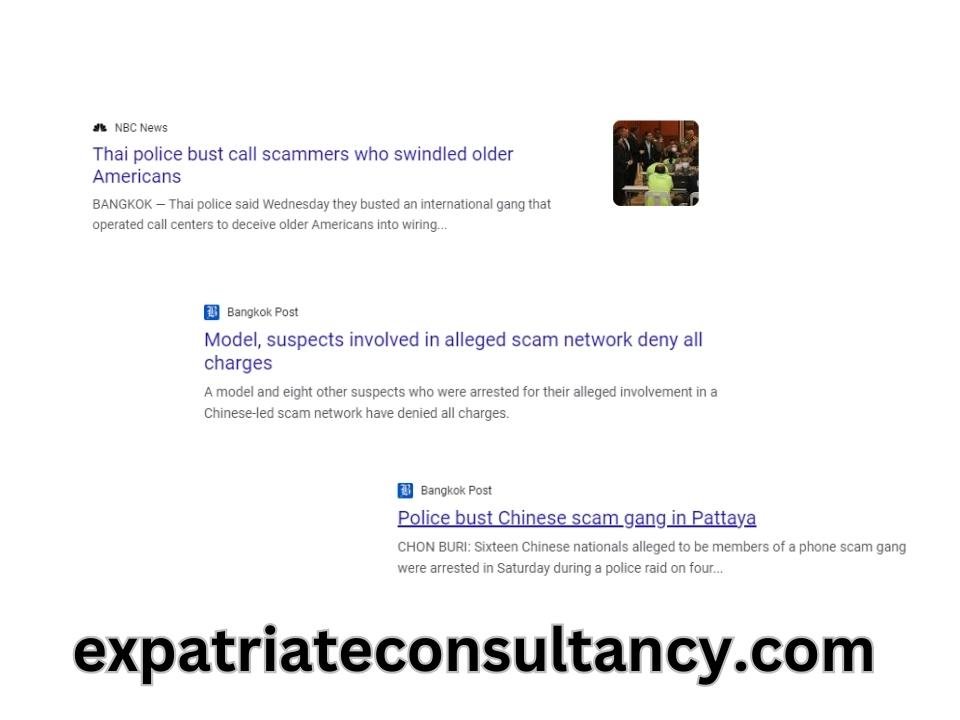
Another downside to consider is the prevalence of scams and overcharging, particularly in tourist-heavy areas. Taxi drivers, for example, often claim their meters are broken and charge higher prices to foreigners. This phenomenon is so common that it has a name: the ‘farang’ price, referring to the term used for Western foreigners. Being constantly on guard for scams can add stress to what should be a relaxing retirement.
How Much Does It Cost to Live in Thailand?
In both situations below we considered Bangkok as a basis for the costs, and a conversion rate of of 0.02821 USD per THB (Thai Baht), and prices of September/2023. Data is from Numbeo and Expatistan.
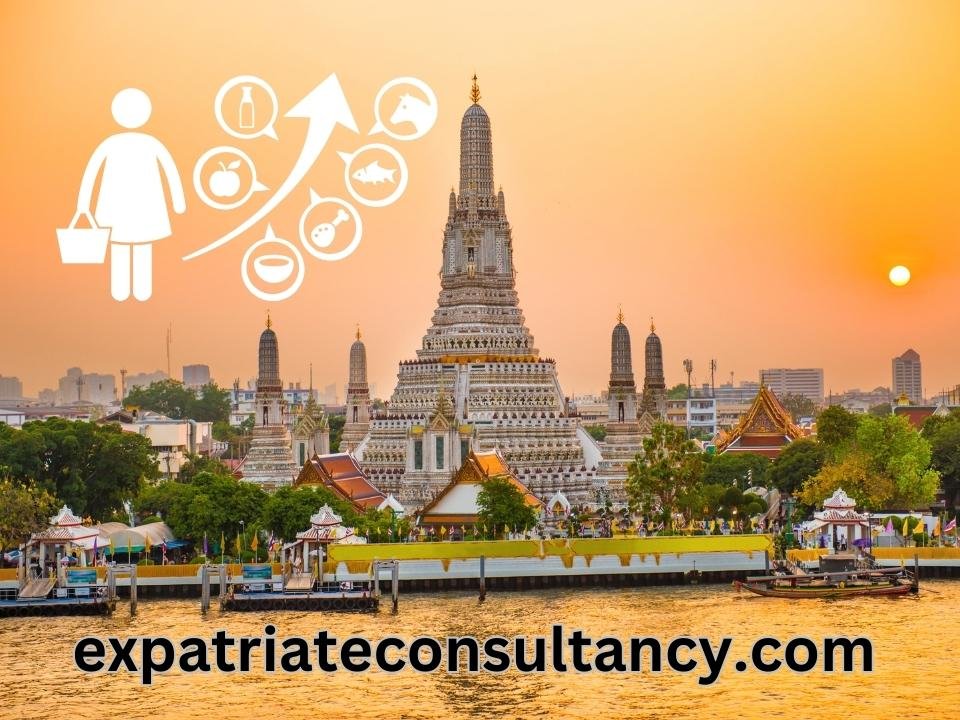
Cost of Living in Thailand for a Single Person
Living in Bangkok as a single person can be quite affordable when compared to other global cities.
The estimated monthly cost for a single individual is around $1,840. A basic lunch will cost you approximately $3.07, and a combo meal at a fast-food restaurant is around $5.87. If you’re planning to rent a furnished studio in a standard area, expect to pay around $300 per month.
Utilities for the studio will add another $55. Internet costs are relatively low, with a monthly charge of $15 for an 8 Mbps connection.
Cost of Living in Thailand for an Elder Couple
For an elder couple, the cost of living can vary based on lifestyle and housing choices.
Renting a furnished 85 m2 accommodation in a standard area would cost around $920 per month. Utilities for such a place would be approximately $181 per month. Food costs are similar to those for a single person, but let’s also consider some leisure activities.
A basic dinner out for two in a neighborhood pub would cost around $19.53, and if you’re a fan of the theater, the best available seats for two will set you back $56.60.
Cost of Living in Thailand (Bangkok) vs Spain (Valência) and the US (Tampa)
It’s time for a comparison of the cost of living in Thailand. I will not compare the living costs of Thailand with those of New York or London, because nearly anywhere in the world is cheaper than those two cities.
Let’s compare the cost of the Thai capital, Bangkok, with the best city for retirement in Europe (Valencia, Spain) and one of the favorite cities for pensioners in the USA (Tampa, Florida).
Remember that there are multiple cities in Thailand that are cheaper than Bangkok, especially those less visited.
All prices are from Numbeo and Expatistan, two websites that crowdsource prices and living costs from thousands of users and contributors.
| Values in USD | Bangkok | Valencia | Tampa |
| Meal for 1 Person, Inexpensive Restaurant | 2.82 | 13.12 | 21 |
| Domestic Beer (0.5-liter draught) in a Supermarket | 1.65 | 0.98 | 2.29 |
| Eggs (regular) (12) | 2.04 | 2.67 | 4.8 |
| Chicken Fillets (1kg) | 3.24 | 8.05 | 10.94 |
| Gasoline (1 liter) | 1.12 | 1.86 | 0.94 |
| Utilities (Electricity, Water, Garbage, etc.) for 85m2 Apartment, monthly | 85.47 | 131.76 | 189.96 |
| Internet (60 Mbps or More) | 15.05 | 29.9 | 69.03 |
| Cinema, International Release, 1 Seat | 7.61 | 8.75 | 15 |
| Short visit to private doctor (15 minutes) | 33 | 73 | 104 |
| Standard men’s haircut in an expat area of the city | 10 | 20 | 28 |
| Rent of an apartment (1 bedroom) | 738.14 | 937.69 | 2,065.90 |
Non-Immigrant Retirement Visa for Thailand

Eligibility Criteria
The first step in obtaining a Thai Retirement Visa is to ensure you meet the eligibility criteria. You must be at least 50 years old and belong to one of the specified nationalities, such as the United States, Canada, and several European countries.
Initial 90-Day Visa
Before applying for the retirement visa, you need to secure a 90-day non-immigrant visa from a Thai embassy or consulate in your home country. This serves as a precursor to the long-term retirement visa.
Financial Requirements
A critical aspect of the visa application to retire to Thailand is the financial requirement. You must have a security deposit of 3 million Baht in a Thai bank account for 12 months prior to the application. Alternatively, you can show proof of a monthly pension income of at least 65,000 Baht.
Required Documents
You’ll need to provide several documents, including a valid passport, recent photographs, and financial evidence like bank statements or pension certificates. Health insurance with specific coverage amounts is also required.
Application Submission
Once you have all the necessary documents, you can submit your application at the immigration office in Thailand. You must either be in the last 30 days of your current permit to stay or have been in Thailand for at least 60 days.
Annual Reporting
After obtaining the visa, you are required to report to the immigration office every year for an examination of your qualifications and supporting documents. Failure to do so may result in the revocation of your visa.
Renewal Process
The Thai retirement visa is renewable every five years. The renewal process can be done within Thailand, but you must still meet all the original requirements for renewal.
The Best Places to Retire to In Thailand
Before deciding to move to any country, visit it first, at least a couple of times in different seasons, and spend there up to 90 days. As travel insurance for visiting visiting Thailand, we recommend Ekta.
Bangkok: The Inexpensive Metropolis
The capital city of Thailand, Bangkok, offers a vibrant lifestyle with its world-class shopping malls, restaurants, and cultural landmarks.
The city is well-connected through an efficient public transportation system, including the BTS and MRT. For retirees who prefer a fast-paced lifestyle and want to stay connected to the rest of the world, Bangkok is the place to be. The city also offers luxurious condos with rooftop pools for a reasonable price.
Pattaya: The Beachside Retreat
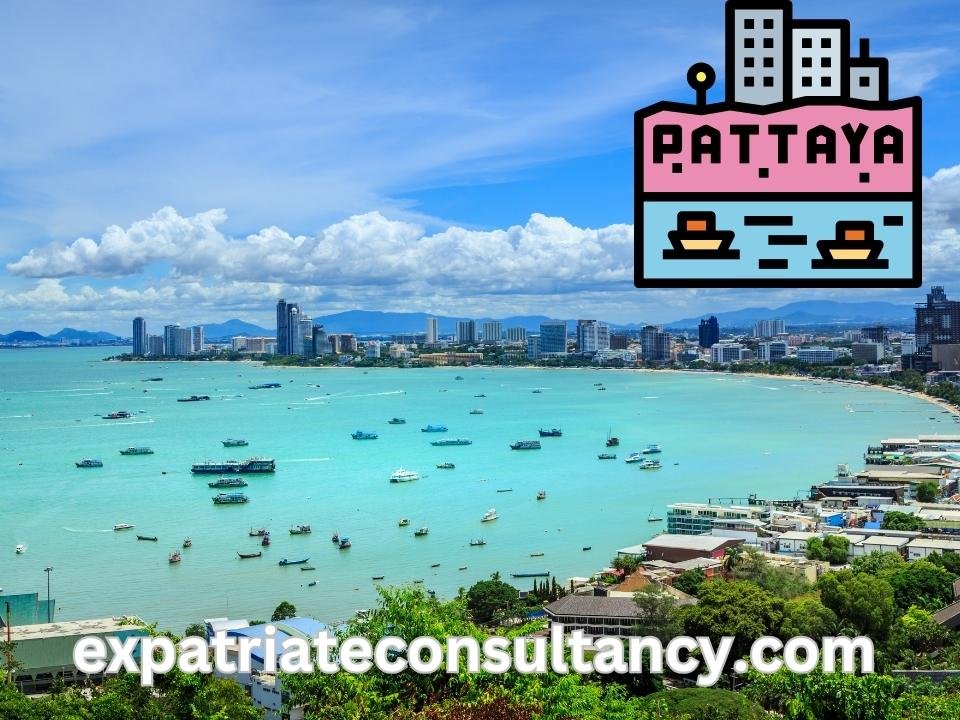
Pattaya is another popular destination for anyone planning to retire to Thailand, especially for those who love beaches.
The city offers a range of housing options, from luxurious condos to more affordable apartments. While the city is known for its vibrant nightlife, there are quieter neighborhoods for those looking for a more relaxed environment. Pattaya also has a good public transportation system and a variety of international cuisines.
Chiang Mai: The Energetic (But a Little Crowded During Season) Hotspot
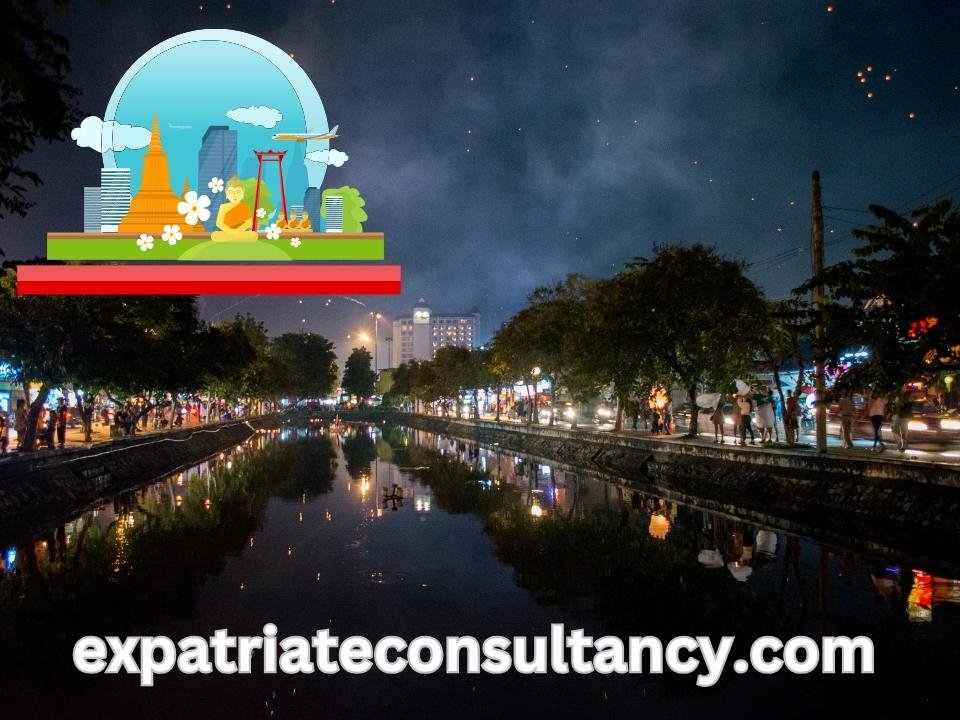
Chiang Mai, located in the mountainous region of Northern Thailand, is a top choice for retirees who are looking for a blend of traditional Thai culture and modern amenities.
The city is known for its beautiful temples, bustling markets, and a wide range of outdoor activities. The cost of living is relatively low, and the healthcare facilities are excellent. The city is also a hub for digital nomads, offering numerous co-working spaces and a reliable internet connection.
Hua Hin: The Royal Beach Town
Hua Hin is a beach town that has long been a favorite getaway for the Thai royal family. The town offers a more laid-back lifestyle compared to Pattaya and is less touristy. It has a range of housing options and is known for its night markets and local cuisine.
The town also offers various outdoor activities and has a decent healthcare system.
Phuket: The Island Paradise
Phuket is an island that offers a range of lifestyle options for those thinking to retire to Thailand, from bustling tourist areas to quieter, more secluded spots.
The island is known for its beautiful beaches, outdoor activities, and world-class diving sites. It also has an international airport, making it convenient for travel. The healthcare facilities are good, and the island offers a range of international cuisines.

Here Are Some Other Great Retirement Destinations We Covered:
- The Dreamy Destination That’s 50% Cheaper to Live In than Spain
- Retirees Choose This Country Due to Low Costs and Simple Pleasures… But Is It Safe?
- The Favorite Country for Americans to Retire (By Far) and Why So Many Do So
- The Pros and Cons of Retirement in Uruguay.
- Why Did Over 29,000 Americans Choose Italy to Retire To?
- Pros & Cons of Retiring in a Place Where Days Can Last for 19 Hours
- Why Did 7539 American Pensioners (And Lewis Hamilton) Move to This Tiny Country?
If you enjoyed this article about moving to Thailand for retirement, here are a few other reading suggestions for you:
Where Can I Live? The Complete Guide of Best Places to Expatriate
The Best Cities for Remote Workers This Year
The Easiest Countries to Adopt From – A Guide.
Levi Borba is the founder of The Expatriate Consultancy, creator of the channel The Expat, and best-selling author. Some of the links in this article may be affiliate links, meaning that the author will have a commission for any transaction.




